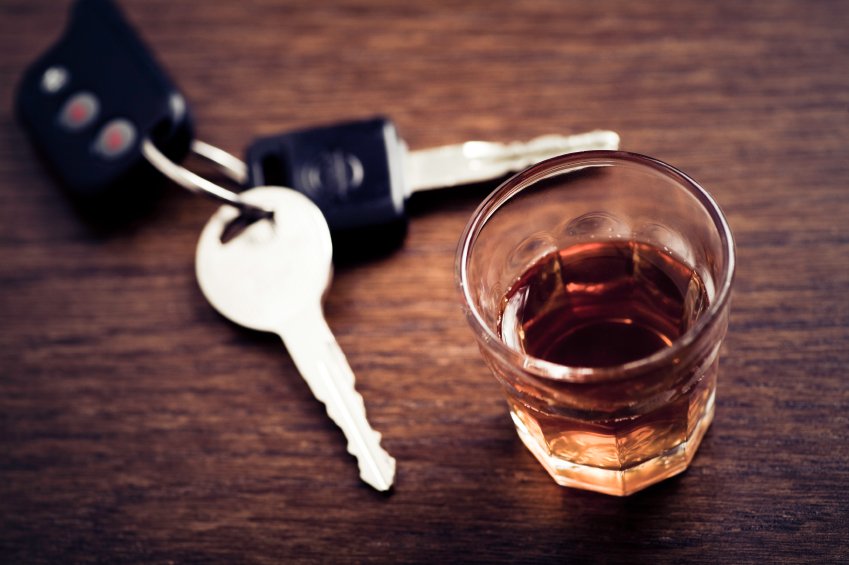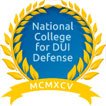
Under NRS 484C.160, Nevada’s implied consent law previously allowed a police officer to use “reasonable force” to obtain a warrantless sample of blood from the person who refused to consent.
After the most recent changes in the Nevada DUI laws, now an officer can only make the request that the driver submit to an evidentiary test if the officer had sufficient reason to believe that the person was driving or in actual physical control of a vehicle or vessel while under the influence of alcohol or a controlled substance. Should a person not provide their consent to an evidentiary test, the law requires the officer to obtain a warrant signed by a Judge. However, there are dramatic consequences to your license, that you need to be aware of, should you request a warrant first.
The officer can request different types of evidentiary tests depending on the circumstances. Those evidentiary tests include a blood or breath test to determine the alcoholic content of the blood or breath. A blood or urine test can also be used to test to determine the presence of:
- a controlled substance;
- chemical;
- poison;
- organic solvent; or
- another prohibited substance.
Knowing that the law allowed warrantless and forced blood draws, officers started pushing the envelop by taking blood by force under circumstances that shocked the public. Officers across the country started conducting “No Refusal Weekends” and conducting forced blood draws during DUI checkpoints.
Since judges were not involved in signing warrants, officers continued to find new ways to take blood. The evening news started showing videos of ordinary citizens being strapped down so that officers could oversee forced blood draws. Public outrage over some of the practices started to mount.
Missouri v. McNeely
Despite the public outrage over forced blood draws, the law enforcement community in Nevada and throughout the county was shocked when the United States Supreme Court decided Missouri v. McNeely, 569 U.S. ––––, ––––, 133 S.Ct. 1552, 1568, 185 L.Ed.2d 696 (2013) (plurality opinion). In McNeely, the Court found that warrantless forced blood draws violated the Fourth Amendment prohibition on unreasonable searches and seizures.
A warrantless search is reasonable only where it falls within a recognized exception such as consent or exigent circumstances. The McNeely court then rejected the proposition that exigent circumstances resulted merely from the fact that alcohol or drugs would dissipate in the driver’s blood after a DUI arrest.
Prior to the McNeely decision, many judges used the landmark decision in Schmerber v. California, 384 U.S. 757 (1966) to support the proposition that the rapid dissipation of alcohol in the bloodstream, by itself, creates an emergency that justifies a warrantless blood draw.
Under McNeely, the court held that the court must review of the totality of the circumstances, not just the rapid dissipation of alcohol, in determining whether any exigency existed.
The McNeely Court recognized that there is no justification for applying the exigent circumstances exception when “officers can reasonably obtain a warrant before a blood sample can be drawn without significantly undermining the efficacy of the search.” Id. at ––––, 133 S.Ct. at 1561.
Although the McNeely Court found that the decision should be made on a case-by-case basis considering the totality of the circumstances, the decision did not provide a list of factors to be considered. Because the totality of the circumstances was not litigated in the case, the Court found there were no exigent circumstances and that the warrantless blood draw was unconstitutional. Id.
Byars v. State
Shortly thereafter, the Nevada Supreme Court held that the consent implied by a person’s decision to drive in this State is not voluntary consent to an evidentiary blood test and, thus, existing laws that allow a police officer to obtain a blood sample from a person without a warrant and without voluntary consent are unconstitutional. Byars v. State, 130 Nev. Adv. Op. No. 85, 336 P.3d 939 (2014)).
Given the U.S. Supreme Court’s decision in McNeely, the Byars Court concluded that the natural dissipation of alcohol or controlled substances did not, standing alone, create exigent circumstances justifying a warrantless blood draw.
The court further concluded that NRS 484C.160(7) was unconstitutional because it permits officers to use force to take a suspect’s blood without a warrant, valid consent, or another exception to the warrant requirement.
Nevada’s 2015 Assembly Bill 67
In response to the Byars decision, the Nevada Legislature passed 2015 Assembly Bill 67. The new law made several changes to Nevada’s implied consent scheme.
First, 2015 Assembly Bill 67 eliminated the constitutional defect identified by the Nevada Supreme Court by requiring that if a person refuses to submit to an evidentiary blood test at the request of a police officer:
- the officer may apply for a warrant or other court order directing the use of reasonable force to obtain the blood sample; and
- the person’s driver’s license must be revoked for a certain period.
NRS 484C.210 now provides that if the subject fails to submit to an evidentiary test as requested by a police officer pursuant to NRS 484C.160, the license, permit or privilege to drive of the person must be revoked as provided in NRS 484C.220, and the person is not eligible for a license, permit or privilege to drive for a period of:
- One year; or
- Three years, if the license, permit or privilege to drive of the person has been revoked during the immediately preceding 7 years for failure to submit to an evidentiary test.
Secondly, 2015 Assembly Bill 67 authorizes the revocation of a person’s license, permit or privilege to drive if an evidentiary test reveals the presence of a detectable amount of a controlled substance or prohibited substance in his or her blood or urine for which he or she did not have a valid prescription or hold a valid registry identification card.
In those cases, the permit or privilege of the person to drive must be revoked as provided in NRS 484C.220 and the person is not eligible for a license, permit or privilege for a period of 185 days.
A driver should be aware that a person whose license is revoked for refusing to submit to an evidentiary test and is found to have a blood alcohol concentration of .08 or more could be look at a loss of license for the one-year period plus the 185-day period, for a total of 18 months. Under the current law there is no provision that allows a person to be able to drive for a recognized hardship during the one-year period.
Thirdly, the Nevada legislature corrected an issue that kept being litigated in DUI cases regarding a person asleep in a car when the car had not been driven. AB 67 states that “a person shall be deemed not to be in actual physical control of a vehicle if:
- The person is asleep inside the vehicle;
- The person is not in the driver’s seat of the vehicle;
- The engine of the vehicle is not running;
- The vehicle is lawfully parked; and
- Under the facts presented, it is evident that the person could not have driven the vehicle to the location while under the influence of intoxicating liquor, a controlled substance or a prohibited substance.
This allows a person to do the right thing and realize before they drive home under the influence that they can fall asleep in the passenger’s seat and not be assumed to have driven or in actual physical control of the car. The previous law punished a person who did not drive but fell asleep in the car. The new law has fixed this issue.
Conclusion
The McNeely and Byars decisions have impacted thousands of DUI cases across the State of Nevada involving a warrantless and non-consensual blood draw. Even felony DUI cases involving serious bodily injury or death were impacted. Lower courts are making totality of the circumstances decisions in a case by case basis with little guidance from the higher courts.
If your case involves a non-consensual warrantless blood draw, then find out more about how recent decisions will impact the admissibility of the evidentiary blood test in your case. Contact Joel Mann, an experienced criminal defense attorney focused on drunk driving defense. Contact Joel Mann’s office at (702) 474-6266 to schedule a free consultation to discuss the case either over the phone or in the office.

















